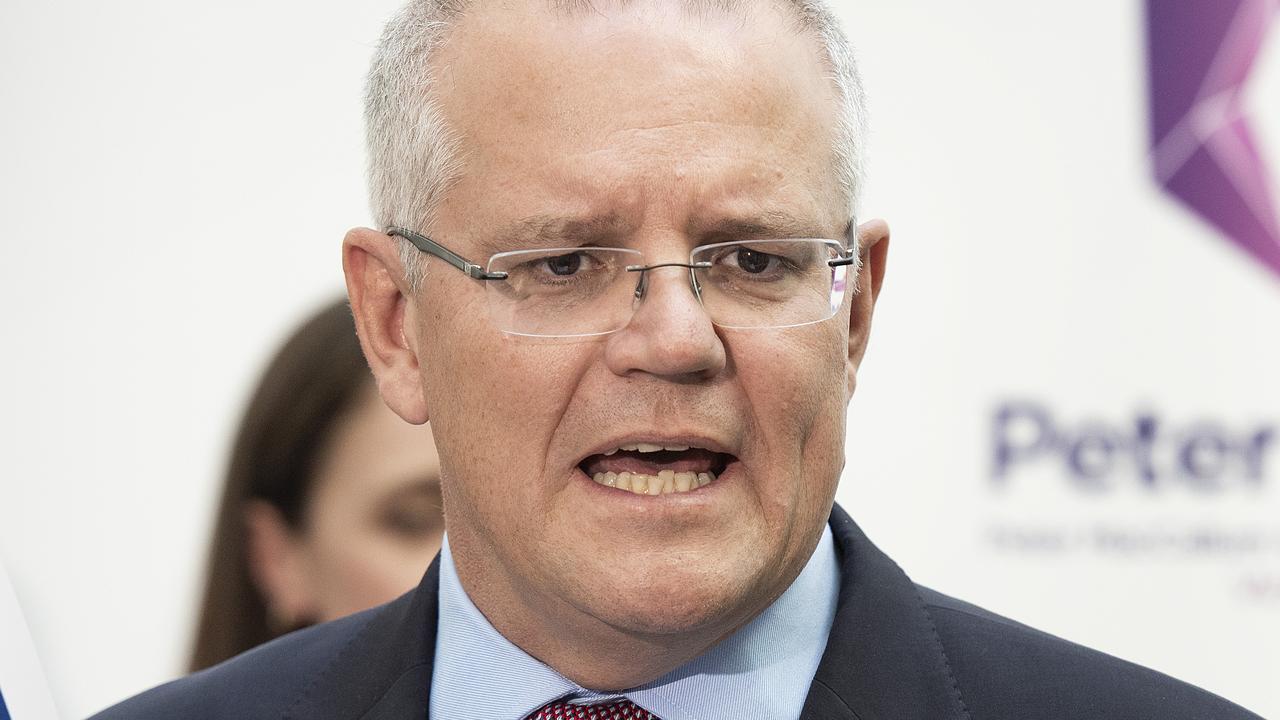The case for reform: taxes a turn-off from working harder
Australians want more incentives to work harder and increase their take-home pay, a special Newspoll finds.

Australians want more incentives to work harder and increase their take-home pay, in a significant finding that backs the case for tax reform, amid fears of the growing burden that is hurting families.
Voters believe the tax system must change to offer more reward for their work, with 57 per cent saying the current regime is not good enough, compared with only 29 per cent who are satisfied with the existing rules.
A special Newspoll, conducted exclusively for The Australian, finds a majority of Australians, regardless of which party they vote for, have concerns about the tax system, in a warning sign to all sides of politics to confront the problem.
Support for more incentives ranged from 60 per cent of Coalition voters to 53 per cent of Labor voters, 51 per cent of those who favour the Greens and 76 per cent of those who back Pauline Hanson’s One Nation.
Malcolm Turnbull has vowed to ease the tax burden on workers and argues that his company tax cuts will boost wages, as the government considers whether to go to the next election with a plan to offer personal tax cuts.
Labor is escalating its calls for bigger taxes on the wealthy — with a $4.1 billion hit to family trusts — while campaigning against the government’s increase in the Medicare Levy on the grounds it should not be imposed on workers who earn less than $87,000.
Voters are split on Bill Shorten’s plan for an increase in the top income tax rate to an effective 49.5 per cent for workers earning more than $180,000 a year, with 43 per cent of respondents backing the policy while 43 per cent oppose it and 14 per cent are undecided.
The government has been escalating its attacks on the Opposition Leader over the tax policy, which seeks to restore a 2 per cent deficit levy on top of the 2.5 per cent Medicare Levy and the 45 per cent income tax rate that already applies to the top bracket.
Scott Morrison has repeatedly warned against a tax system that takes almost half of earnings once a worker moves past the top income threshold.
“Bill Shorten is saying that when you do well in this country you should work one day for the government and one day for yourself,” the Treasurer has said.
The effective tax rate for most wealthy workers would not be 50 per cent, given the top rate applies only to earnings over $180,000 a year. A worker on $400,000, for example, would pay 38 per cent of that in tax, but the Labor policy leaves the party exposed to attacks for raising taxes rather than cutting spending.
The voter response to Mr Shorten’s policy is strongly influenced by party preference, with 64 per cent of Labor voters backing the plan compared with 53 per cent of Greens supporters, 32 per cent of One Nation supporters and just 26 per cent of Coalition voters.
The survey of 1639 voters was conducted from Thursday to Sunday, about a week after Mr Shorten unveiled his tax plan for trusts and came under fire from small businesses and the government for increasing the tax burden in a way that would hurt the economy.
Maryam Kirollos, from Parramatta in Sydney’s west, believes there should be stronger incentives for people to work and earn more under the current tax system, particularly given exponential living costs and stagnant wage growth. The 28-year-old, who works in human resources, said that while she earned just below $90,000 a year, there was little incentive for her to nudge over into the higher tax bracket.
“You do get turned off trying to earn more because of how much extra tax you’d be paying,” Ms Kirollos said. “If I was aiming for a promotion or a payrise, my tax would increase and that would significantly reduce the amount of that payrise and what’s in my pocket at the end of the day.”
She cited high costs of living in Sydney, particularly food and travel, and the potential high costs of childcare if she were to have a family, as reasons for not moving into the higher tax bracket.
Ms Kirollos said she believed too much of the tax burden fell on higher-income earners.
The Newspoll survey showed voters had only moderate concerns about taxes imposed on the wealthiest workers when asked about academic findings that the top 10 per cent of income earners paid 50 per cent of the income tax collected. This estimate is backed by the National Centre for Social and Economic Modelling at the University of Canberra.
Asked if the tax burden fell too heavily on high income earners, 29 per cent agreed and 61 per cent disagreed. Coalition voters were more concerned about the burden, with 36 per cent agreeing with the question while 54 per cent disagreed. Labor voters were more likely to side against the top income earners, with 21 per cent agreeing with the proposition and 72 per cent disagreeing.
Among Greens voters, 28 per cent said the tax burden fell too heavily on the top income earners, while 69 per cent disagreed.
The result among One Nation voters was that 32 per cent agreed and 58 per cent disagreed.
Households are already feeling the impact of a steady increase in their income taxes, according to a report from Deloitte Access Economics last November that workers will pay $4.6bn this financial year as inflation lifts their taxable income into tax brackets that incur a higher tax rate. Workers will pay another $9.4bn extra from bracket creep in 2020.



